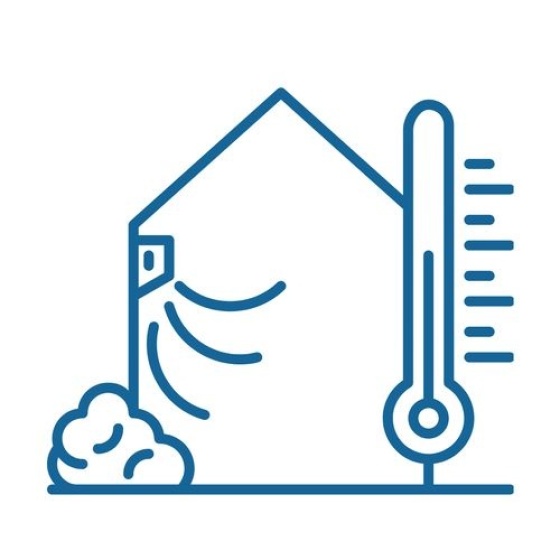Towards a Loosening of the Ban on Renting Energy-Inefficient Homes

The rental of “energy-inefficient homes”, properties rated F or G, which represent more than 15% of France’s rental stock, could soon benefit from several exemptions. This comes as welcome news for landlords facing the impossibility of renovating certain properties, though it has sparked criticism from environmental advocates and tenant organizations.
A Reminder of the Climate and Resilience Law Provisions
Adopted in August 2021, the Climate and Resilience Law established a phased schedule to ban the rental of the most energy-consuming properties. The goal: to accelerate the renovation of France’s housing stock, which accounts for nearly a quarter of the country’s greenhouse gas emissions. The law provides for a ban on renting:
• Properties rated G on the energy performance certificate (EPC) as of January 1, 2025
• Properties rated F starting in 2028
• Properties rated E beginning in 2034
In practical terms, owners of these properties will no longer be allowed to rent them out unless they have completed the necessary work to reach at least class F (initially), then class E and D in subsequent phases.
These measures pursue a dual objective: to reduce the carbon footprint of the building sector and to combat energy poverty among tenants, who face particularly high utility bills in poorly insulated homes.
Exemptions for “Impossible” Cases and Condominiums
Faced with the difficulties encountered by many property owners, the Senate adopted on April 1, 2025, a bill proposed by Senator Amel Gacquerre (UDI) with the support of Valérie Létard, Minister for Housing, introducing several exceptions to the current ban.
Specifically, landlords will be allowed to rent out their properties, even if rated G, provided they have completed “all technically and legally possible renovation work,” notably in the following cases:
• In the event of technical or architectural impossibility: when the configuration of the property or building makes it technically impossible to carry out the required work (for example, refusal from the French Heritage Buildings authority or from the condominium association).
• In the case of planned condominium work: for properties located in buildings where energy renovation work has been voted on but not yet carried out. Owners would benefit from an additional grace period to bring their property up to standard, provided that the condominium can demonstrate an approved renovation plan.
• In cases where the renovation cost is disproportionate to the property’s value: in such situations, rental would remain permitted despite a poor energy rating.
In all cases, affected property owners would need to obtain a certificate issued by an architect or a certified energy consultancy confirming either the technical impossibility of carrying out the work or that the renovation project has been approved by the condominium.
“These adjustments do not call into question the overall objective of energy renovation, but they take into account real-world conditions and the constraints faced by certain property owners,” declared the Minister for Housing.
A Clear Objective: Preventing a Collapse of the Rental Market
This initiative responds to growing concerns among real estate professionals, who feared a massive withdrawal of F- or G-rated properties from the rental market. In major cities such as Paris, Lyon, or Marseille, where energy-inefficient homes represent up to 20% of the private rental market, the impact could have been significant on an already tight housing supply.
Furthermore, the average cost of renovation to upgrade a property from class G to class F is estimated between €15,000 and €40,000, depending on the property’s size and configuration — an investment many small landlords simply cannot afford.
Diverging Opinions and Uncertain Outlooks
While landlord associations have welcomed these adjustments, environmental groups and tenant advocacy organizations have criticized them as a step backward in the fight against energy poverty and climate change.
“A tenant living in an energy-inefficient home can spend over €2,500 per year on heating. The social emergency and the climate emergency are one and the same,” stated the Housing Foundation, which advocates for better financial support for landlords rather than relaxing existing standards.
The proposed bill will now move to the National Assembly, likely before summer 2025. Amendments could still be introduced to clarify the eligibility criteria for these exemptions or to strengthen financial assistance for energy renovation.
This is definitely one to watch closely, nothing has been officially finalized yet.





